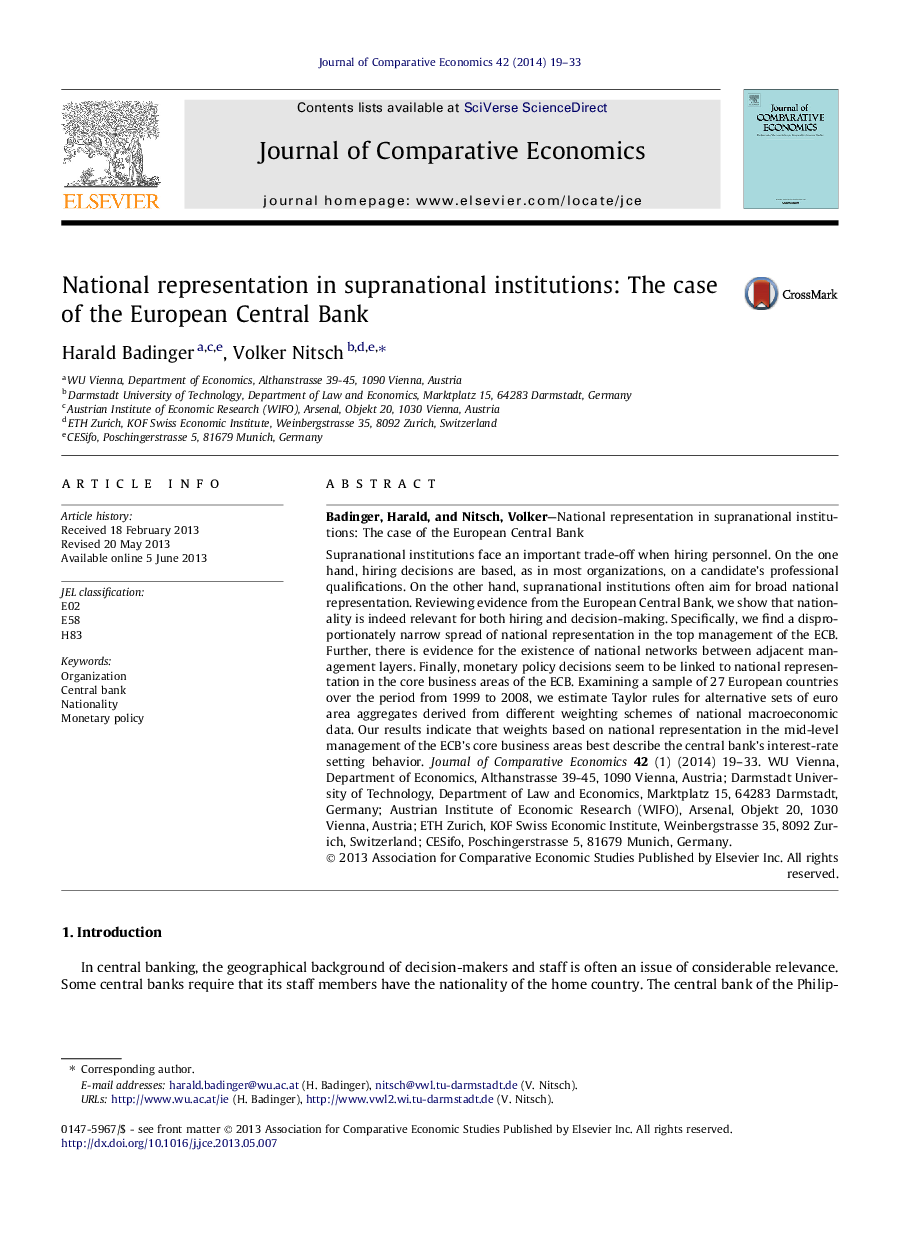| Article ID | Journal | Published Year | Pages | File Type |
|---|---|---|---|---|
| 5092376 | Journal of Comparative Economics | 2014 | 15 Pages |
Abstract
Supranational institutions face an important trade-off when hiring personnel. On the one hand, hiring decisions are based, as in most organizations, on a candidate's professional qualifications. On the other hand, supranational institutions often aim for broad national representation. Reviewing evidence from the European Central Bank, we show that nationality is indeed relevant for both hiring and decision-making. Specifically, we find a disproportionately narrow spread of national representation in the top management of the ECB. Further, there is evidence for the existence of national networks between adjacent management layers. Finally, monetary policy decisions seem to be linked to national representation in the core business areas of the ECB. Examining a sample of 27 European countries over the period from 1999 to 2008, we estimate Taylor rules for alternative sets of euro area aggregates derived from different weighting schemes of national macroeconomic data. Our results indicate that weights based on national representation in the mid-level management of the ECB's core business areas best describe the central bank's interest-rate setting behavior.
Related Topics
Social Sciences and Humanities
Economics, Econometrics and Finance
Economics and Econometrics
Authors
Harald Badinger, Volker Nitsch,
